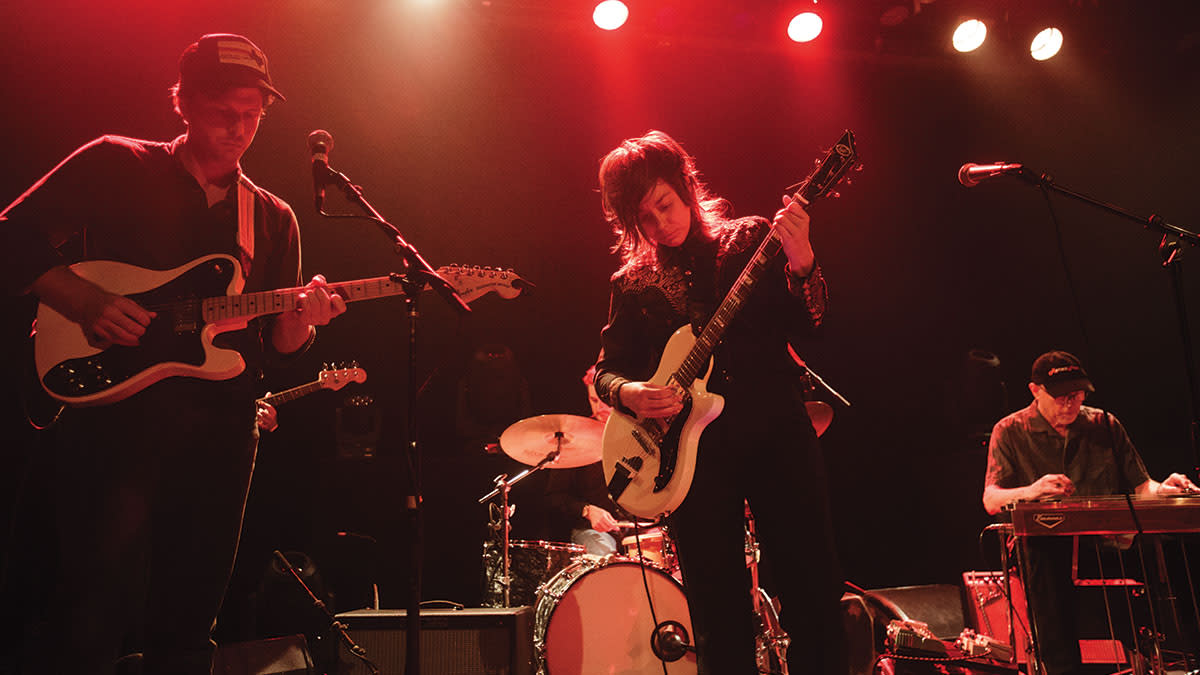How ditching pedals and embracing open tunings made H.C. McEntire love the guitar again

- Oops!Something went wrong.Please try again later.
On 2023’s Every Acre, H.C. McEntire made a bold step in her evolution from the noise-rock howler of her younger years into a graceful singer-songwriter – and a crucial ingredient in that transition showed up in co-guitarist Luke Norton.
Whereas McEntire was the sole guitar player in her previous bands and projects, weaving together rhythm and lead elements in her own way, the jazz-trained Norton complemented her playing and freed her to focus more on songwriting than ever before.
“We wrote a lot of the songs together,” McEntire says. “He would write a guitar riff or a fingerpicked pattern, then I would write a [guitar] melody or vocal melody on top. We negotiate space in a cool way.”
McEntire grew up in rural western North Carolina on a steady diet of church hymns and early ’90s country stars like Randy Travis, plus whatever else the radio could pick up in her hometown. While at college, though, her discovery of Neil Young and Sleater-Kinney set her on a different musical path. She picked up a ’66 Fender Mustang and spent the next 10 years fronting the mathy post-punk trio Bellefea.
“I played in a punk band with a bunch of pedals,” she says, “and I think when I stepped away from that, I started thinking about songs a little differently.”
McEntire’s aesthetic evolved into Mount Moriah, which marked a turn toward storyteller lyricism and a gentler indie-rock sound, often filtered through Southern Gothic vibes. Playing in the acclaimed three-piece gave her a platform to continue kicking up Crazy Horse-style energy while exploring simpler musical arrangements and developing her vocals and melodies.
But by the time she went solo with 2018’s Lionheart, McEntire had hit a wall with conventional guitar chords and patterns. “The biggest change or evolution for me as a guitarist happened when I decided to start playing [and] writing songs in open tunings,” she says. “I fell in love with the guitar again.”
Discovering DADGAD tuning – a favorite of players like Jimmy Page, who employed it on Kashmir and Black Mountain Side – provided her with a fuller sound and renewed excitement for the possibilities of new musical colors and textures. McEntire’s subtle chord figures, played on her Harmony Stratotone, and her soaring, Emmylou Harris-esque vocals, are the backbone throughout Every Acre.
That left Norton to wrestle quivering, feedback-laden licks from a Telecaster and a semi-hollowbody Eastman on songs like Turpentine,” where his wooly, dissonant leads counterbalance the vocal harmonies from McEntire and Amy Ray of Indigo Girls. “Our styles are so different,” she says of Norton. “It’s like this beautiful collage.”
Every Acre is out now via Merge.

